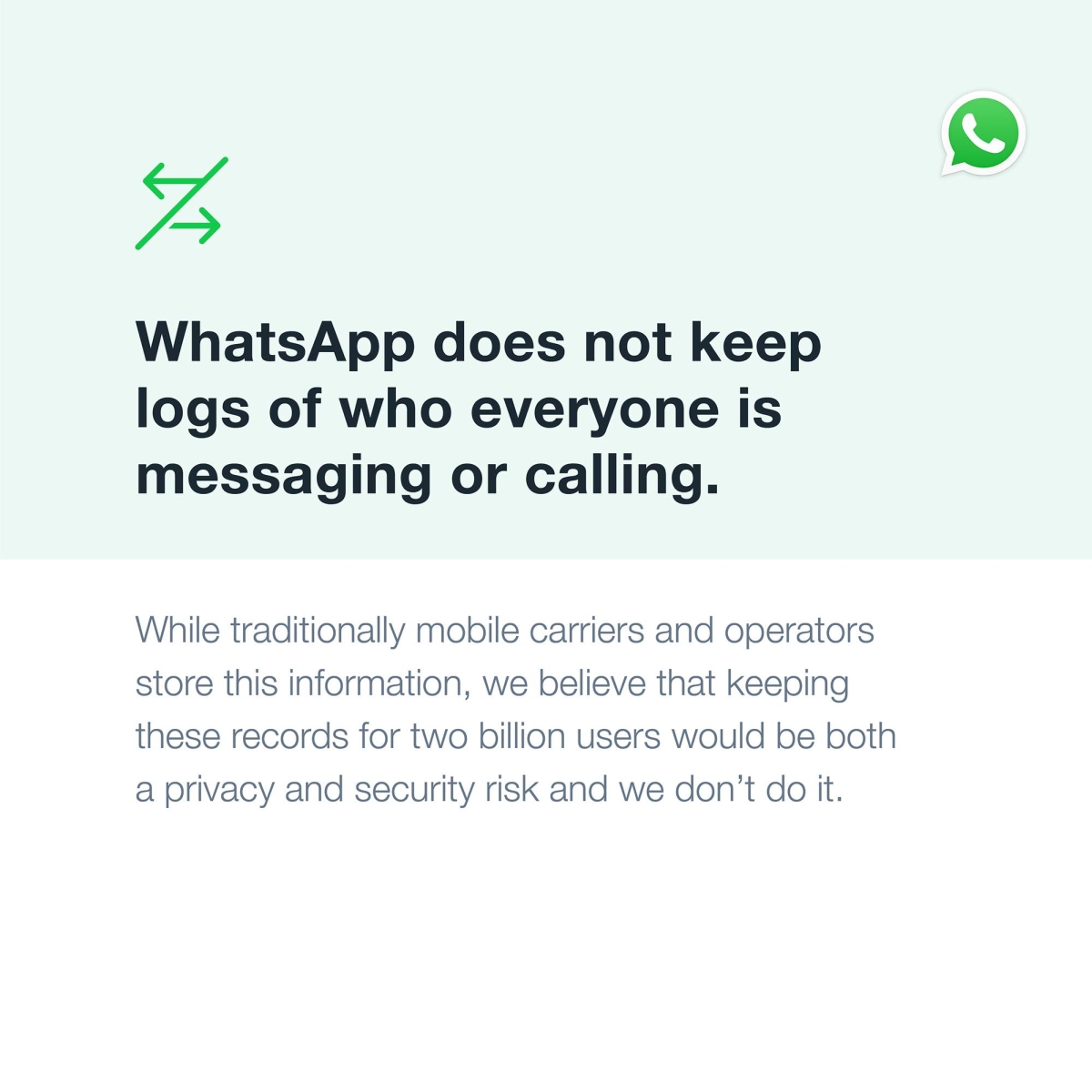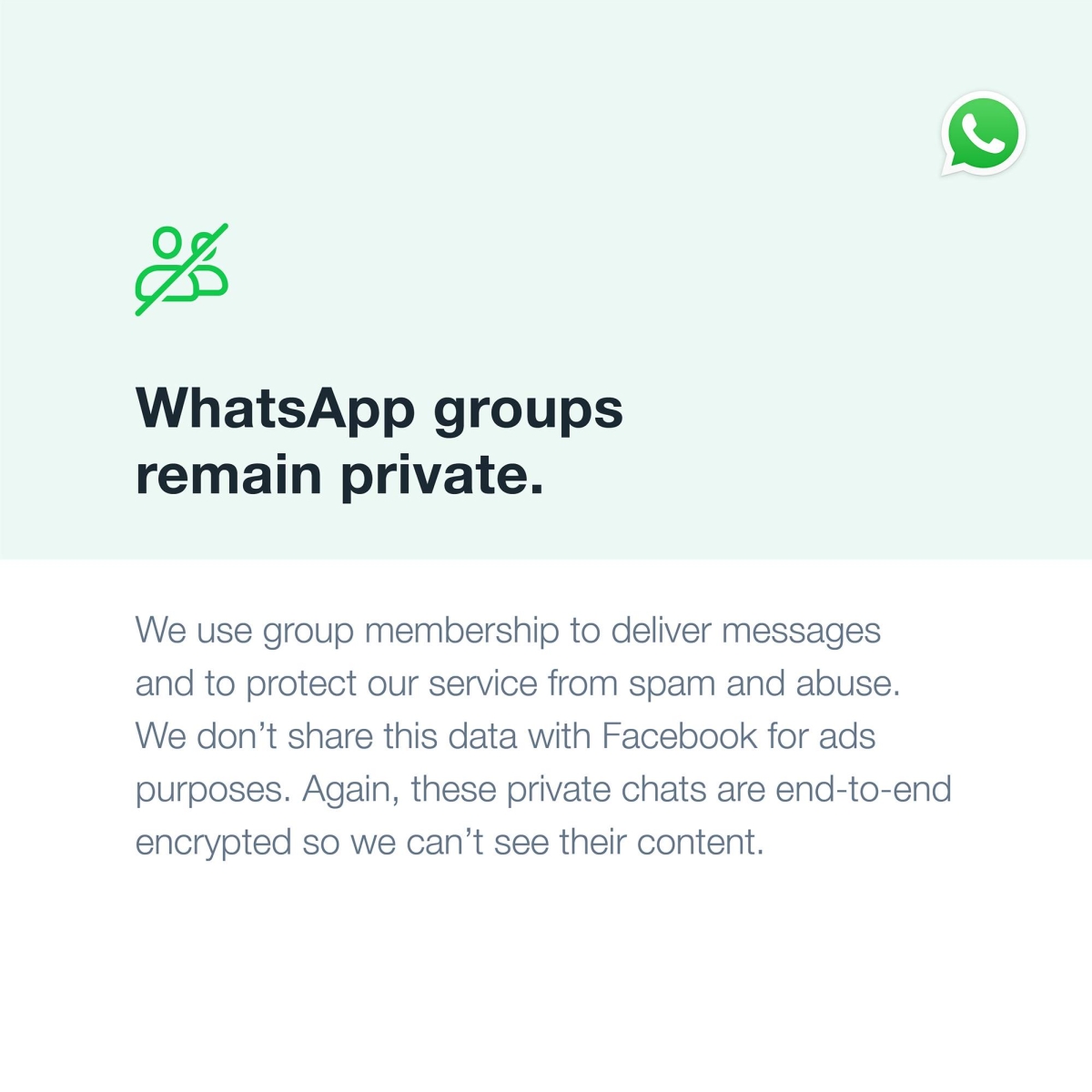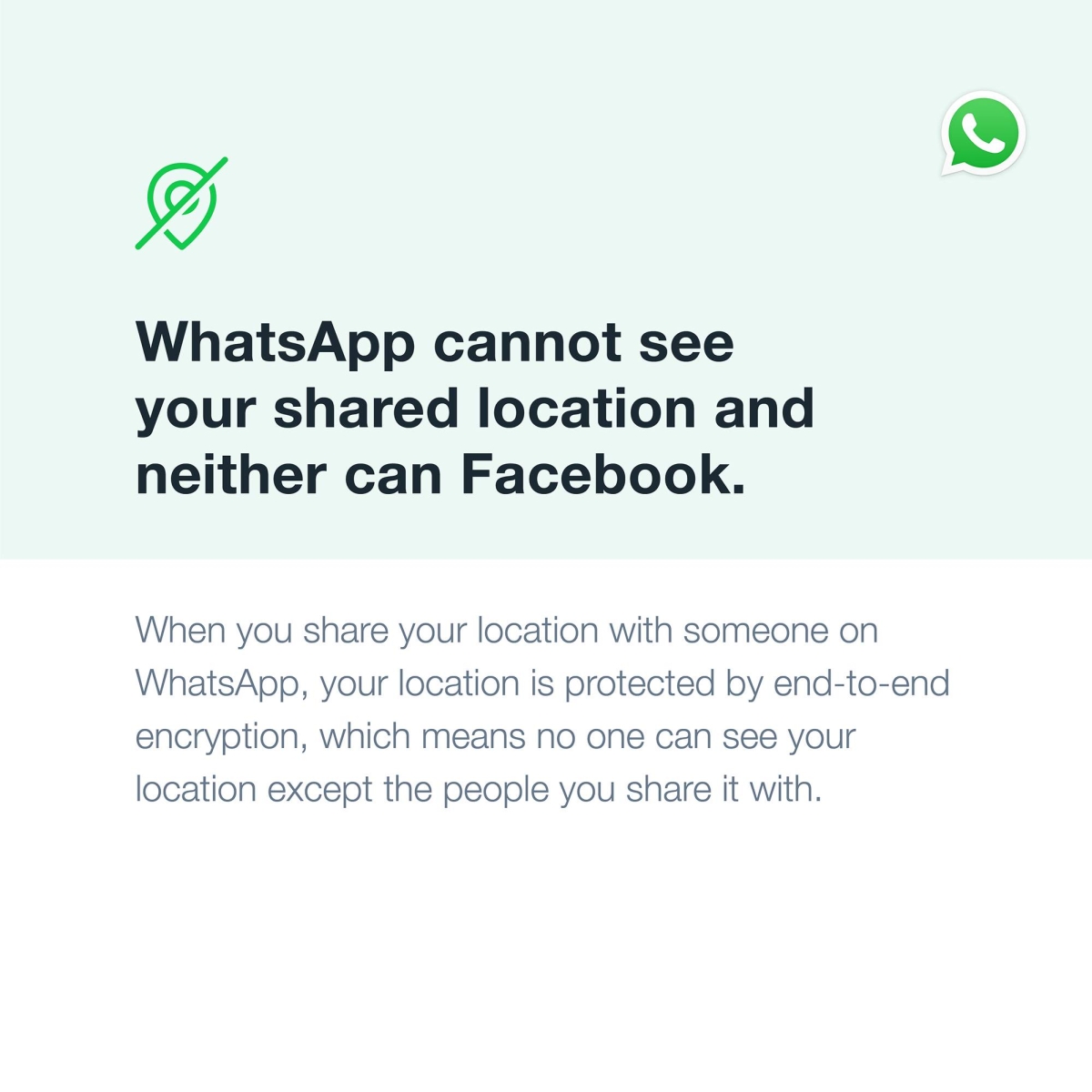Recently, WhatsApp updated its terms and privacy policy—and the internet naturally exploded. See, the new terms primarily focuses on integration with Facebook‘s family of apps (WhatsApp, Facebook, Instagram), and seemingly opened up the possibility of Facebook ads on WhatsApp… which would definitely not be something the public wants.
But there are also plenty of privacy concerns where it comes to the new terms. For one, the terms state that your “WhatsApp experiences” will be connected with “other Facebook Company Products”, while there is also mention of how information shared may be used for “personalising features and content” and “showing relevant offers and ads across the Facebook Company Products”.
The new terms also appear to allow for the collection of more usage and log information compared to the current terms:
Usage And Log Information. We collect information about your activity on our Services, like service-related, diagnostic, and performance information. This includes information about your activity (including how you use our Services, your Services settings, how you interact with others using our Services (including when you interact with a business), and the time, frequency, and duration of your activities and interactions), log files, and diagnostic, crash, website, and performance logs and reports.
This also includes information about when you registered to use our Services; the features you use like our messaging, calling, Status, groups (including group name, group picture, group description), payments or business features; profile photo, “about” information; whether you are online, when you last used our Services (your “last seen”); and when you last updated your “about” information.
WhatsApp wants to be “100% clear” about privacy protection
In response, WhatsApp has just shared more information on its official Facebook page, stating that they want to be “100% clear” on how they plan to “protect your private messages”. A number of slides were shared:
The Facebook-owned company has also published a specific FAQ section on the official site to answer questions regarding WhatsApp’s updated Privacy Policy. Within the page, WhatsApp acknowledges the rumours that have been making the rounds, while maintaining that the new policy does not affect the “privacy of your messages with friends or family in any way”.
Instead, WhatsApp claims that the update merely includes changes that are related to messaging a business on WhatsApp, along with improving transparency on how user data is used. End-to-end encryption is still standard on WhatsApp, which means that the company cannot see private messages and calls—neither can Facebook, or Facebook Companies.
Additionally, the company assures users that call logs are not recorded or stored in any way, while your shared location data is still protected by end-to-end encryption (which means WhatsApp/Facebook cannot access this data). This looks like it applies to locations that you “share” within chats.
What’s confusing here is that the new terms state that WhatsApp/Facebook will collect and use “precise location information from your device”—and even if you don’t use location-related features, the company can use IP addresses or phone numbers to estimate your location. See below:
Location Information. We collect and use precise location information from your device with your permission when you choose to use location-related features, like when you decide to share your location with your contacts or view locations nearby or locations others have shared with you. There are certain settings relating to location-related information which you can find in your device settings or the in-app settings, such as location sharing. Even if you do not use our location-related features, we use IP addresses and other information like phone number area codes to estimate your general location (e.g., city and country). We also use your location information for diagnostics and troubleshooting purposes.
Other assurances given by WhatsApp include a promise that WhatsApp contacts will not be shared with Facebook. Contact lists will not be shared with Faceboook apps, although access to phone numbers (with user permission) is used to make messaging “fast and reliable”. Group messages will also continue to be protected under end-to-end encryption.
If you’d like to compare policies yourself, you can read the current terms of service here, and the updated terms here. Meanwhile, click here for the current privacy policy, and here for the updated privacy policy. As we mentioned earlier, if you don’t agree to the updated terms, you can delete your WhatsApp account.
















